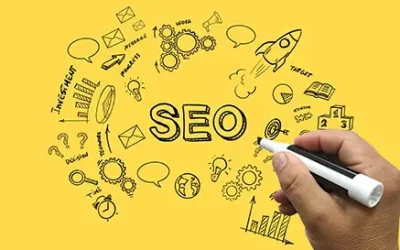When it comes to website design, development and maintenance, it is important to keep your eyes wide open for any update that Google could be bringing about. If these updates directly deal with ranking factors, Google has a new update focusing on the user experience of a website.
What the Page Experience Update Is All About
Search Engine Land reports that the Page Experience update will put greater focus on how the user perceives a website to be, and how easily they are able to navigate the page and find what they’re looking for. While this has always been important for Google, this update will make it directly and specifically one of the many factors that determine how a website is ranked. This has to do with the experience of a specific page, which is what page experience is all about. The update is only making its way in 2021, but it would be better for websites to prepare for it well in advance.
The Page Experience Criteria
The page experience criteria focus on factors such as:
- How quickly a page loads
- How mobile-friendly it is
- Whether ads interfere with the experience of the user
- Whether content keeps moving about while the page gets loaded
- Whether the page runs on HTTPS
Page experience consists of all these factors that have individually been the focus of various existing Google updates such as the Page Speed Update, HTTPS ranking boost, the mobile-friendly update, safe browsing penalty and the intrusive interstitials penalty. All metrics are focused on the speed and usability factors that make up the Core Web Vitals.
Core Web Vitals for Overall Page Experience
The Core Web Vitals are real-world metrics centered on user experience. They measure factors such as page loading time, the content stability as the page loads, and the overall interactivity of the page, and then give scores on these aspects. These metrics can basically be classified under the following:
- Largest Contentful Paint (LCP) is a measure of the loading performance of a page. LCP basically means the loading of the entirety of the content of the page. The entire content must load in just 2.5 seconds of the initial loading of the page.
- The next metric is First Input Delay (FID). This measures the interactivity of the page. The FID of your page must be below 100 milliseconds to have a good user experience.
- The Cumulative Layout Shift (CLS) is a measure of the visual stability of your page content as it loads. A CLS below 0.1 is essential and ensures that the content of your page doesn’t keep jumping about as your page loads.
Adding up LCP, FID and CLS gives you the overall page experience score. Specifically, page experience has not been a ranking score, but each of these factors has its place in the overall ranking algorithm for Google by constituting the Core Web Vitals, which is a search signal.

Source-https://searchengineland.com/the-google-page-experience-update-user-experience-to-become-a-google-ranking-factor-335252
Other Factors for Optimum User Experience
Then there are the other metrics too that contribute to the overall user experience:
-
- You have the mobile-friendly factor. The Mobile-Friendly Test can help you as certain if your page can load well on the mobile phone, which is extremely important.
- Another important factor is the safety and security you ensure users browsing your page. For that, your page must be free from any malicious content that could be concealing some malware. Your pages must also be free from deceptive content adopting strategies such as social engineering.
- Your page should be served over HTTPS. That ensures security of your website’s connection.
- You have the mobile-friendly factor. The Mobile-Friendly Test can help you as certain if your page can load well on the mobile phone, which is extremely important.
- You shouldn’t have intruding interstitials on your page. These can make content hard to consume for genuine seekers. Anyone visiting your web page must have easy access to your page’s content.
All these make up the page experience factor, which is basically a user’s experience of your page. Does your page delay imparting information to the user right away, within the aforementioned duration, or does it delay giving the user what they are looking for and waste more of their time?
Quality Content Still Rules
While the new page experience update to be launched in 2021 will be significant, Google has emphasized that it won’t surpass quality content. So, according to Google, even if certain aspects of the page user experience aren’t up to the mark, great content could determine where pages rank. Content must be informative, reliable and relevant. Google states that where page experience becomes more important for search visibility is in situations when you have multiple pages with similar content.
But there is a great deal of time for webmasters to prepare for updates. Google will make the update live in 2021, though it isn’t clear when in 2021 it would introduce it. But Google has mentioned that it will provide a notice of 6 months before the update goes live. So the date for the update launched will be revealed well ahead of time. This may be unusual, but the unpredictable environment brought about by the Covid-19 pandemic has probably motivated Google to make things easier for webmasters by announcing the Page Experience update well in advance.
With experienced healthcare digital marketing services to support you, you can ensure your website satisfies all the page experience requirements and is prepared whenever the update sees the light of day.






